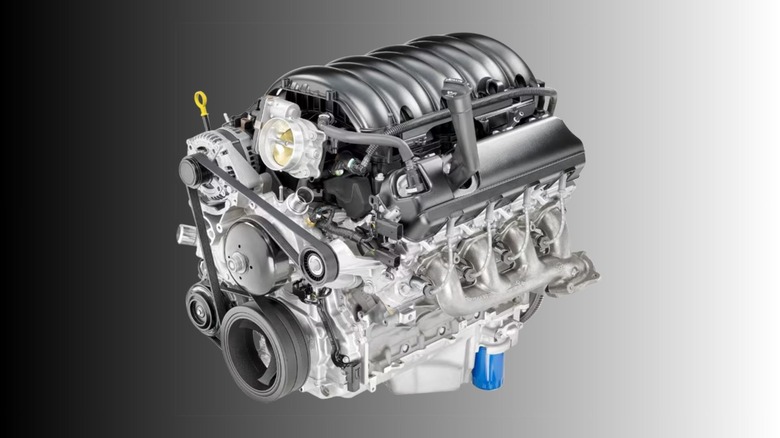GM Engines Are Still Failing, And The US Government Wants To Know Why
The engine troubles for General Motors aren't stopping anytime soon, it seems. In January, the National Highway Traffic Safety Administration (NHTSA PDF) launched an investigation into engine failure issues affecting hundreds of thousands of vehicles. Roughly nine months later, the agency is widening the scope of its investigation into engine-related issues. In its notice, the Office of Defects Investigation (ODI) mentions that it logged 1,157 incident reports involving engine and bearing failure affecting GM's L87 6.2-liter engine.
The issues affect cars falling in the model year 2019-2024 range, and fitted inside Chevrolet Silverado, GMC Sierra 1500, Chevrolet Suburban and Tahoe, GMC Yukon/Yukon XL, and Cadillac Escalade/Escalade ESV cars. "This presents a potential safety risk that warrants further investigation," the ODI notes, adding that it's still receiving "a significant number of reports" documenting engine failure issues. It is now initiating an engineering evaluation to find the root cause of the issue and assess the full spectrum of safety risks posed by the engine problems.
The agency's notice mentions a total of 3,315 reports of engine failure, out of which five resulted in a crash or fire incident. Thankfully, no injuries or fatalities have emerged from engine-related woes so far. Notably, GM's L87 6.2L V8 has already found itself at the center of a lawsuit that was filed earlier this year. An updated version of the lawsuit that was filed in June mentioned a dangerous bearing defect that can trigger total engine failure and result in serious accidents.
Why are GM's engines failing?
The NHTSA is yet to identify the exact cause behind engine-related issues affecting GM cars. The manufacturer, on the other hand, has attributed them to "multiple supplier manufacturing and quality issues." Owing to similar quality check problems that caused engine failure, GM issued a recall earlier this year covering cars manufactured between March 1, 2021, and May 31, 2024. As per Reuters, the company had zeroed in on defective connecting rods and crankshaft engine components as the reason behind the engine-related damage and subsequent operational failures.
At the moment, the NHTSA or GM hasn't detailed the technicalities in the aftermath of engine failure, except of a vague "loss of motive power" following an engine failure incident. In a statement shared with AutoNews, the company said it will assist with the NHTSA's investigation. Usually, issues like this prompt a recall, and the defective parts are replaced without incurring any charge for owners of the affected vehicles.
Nevertheless, it's still a hassle, especially from a logistics perspective when dealerships are struggling with the supply of replacement parts or there's a long queue to contend with. This won't be GM's first tango with engine issues. Back in the 1960s, GM had to recall a staggering 4.9 million cars due to carburetor issues, slotting it in the list of biggest engine recalls in the U.S. automotive history.

